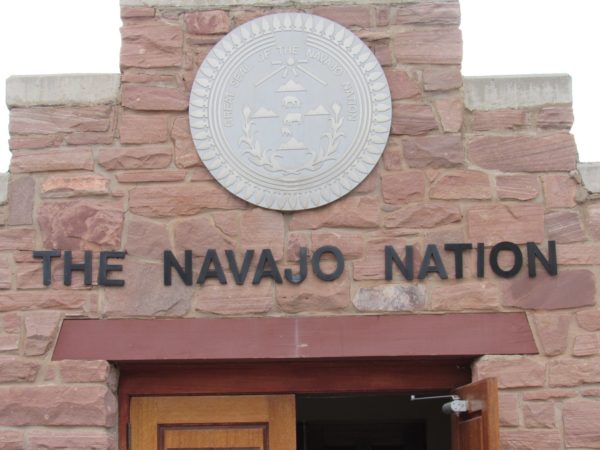
- Details
- By Native News Online Staff
WINDOW ROCK, Ariz. — On Sunday, the Navajo Department of Health, in coordination with the Navajo Epidemiology Center and the Navajo Area Indian Health Service, reported 15 new COVID-19 positive cases for the Navajo Nation and two more deaths. The total number of deaths now totals 472 as of Sunday. Reports indicate that 6,859 individuals have recovered from COVID-19. 85,206 COVID-19 tests have been administered. The total number of COVID-19 positive cases is 9,308.
Navajo Nation COVID-19 positive cases by Service Unit:
- Chinle Service Unit: 2,255
- Crownpoint Service Unit: 777
- Ft. Defiance Service Unit: 720
- Gallup Service Unit: 1,500
- Kayenta Service Unit: 1,281
- Shiprock Service Unit: 1,455
- Tuba City Service Unit: 877
- Winslow Service Unit: 439
* Four residences with COVID-19 positive cases are not specific enough to place them accurately in a Service Unit.
On Sunday, the state of Arizona reported 816 new cases of COVID-19 and Utah reported 376 new cases. The state of New Mexico has yet to report their daily numbers for Sunday. The Navajo Nation’s 32-hour weekend lockdown began on Saturday, Aug. 8 at 9:00 p.m. (MDT) until Monday, Aug. 10 at 5:00 a.m. All businesses remain closed for the duration of the weekend lockdown.
“15 new cases reported today is a good indication that the majority of the Navajo Nation’s residents are complying with the public health emergency orders and that they are listening to the advice of our health care experts. We have to continue to do what we are doing to keep flattening the curve. We cannot rush to fully reopen the government, parks, and businesses. We have a work group that has been developing a plan to gradually reopen the Navajo Nation is a way that provides for safety measures, accountability measures, and prioritizes the health and safety of all employees and residents. Other states made the mistake of reopening too soon and that’s what we want to avoid. Our health care system will be tested greatly if we have another spike in new cases. We will continue to carefully analyze the data and seek the advice of our health care experts each step of the way,” said Navajo Nation President Jonathan Nez.
On Saturday, the Nez-Lizer Administration partnered with the Winslow Indian Health Care Center to distribute food and essential supplies to 571 families in the communities of Winslow, Leupp, and Dilkon to help keep people home and safe.
For More Information
For more information including reports, helpful prevention tips, and more resources, please visit the Navajo Department of Health’s COVID-19 website. To contact the main Navajo Health Command Operations Center, please call (928) 871-7014
For up to date information on impact the coronavirus pandemic is having in the United States and around the world, visit the Worldometers website.
For up-to-date information about COVID-19, Native News Online encourages you to go to Indian Health Service’s COVID-19 webpage.
The Nez-Lizer Administration is also working with businesses to setup food donation drop-off sites at grocery stores to allow Navajo Nation residents to contribute non-perishable food items, which will be made available to Navajo people and others living in the Phoenix area as a way to give back to our relatives and friends of the Navajo Nation who graciously donated essential items to the Navajo Nation.
More Stories Like This
Native News Weekly (August 25, 2024): D.C. BriefsUS Presidents in Their Own Words Concerning American Indians
Two West Virginia Guardsmen Shot Near White House
Next on Native Bidaské: Chef Sean Sherman Talks “Turtle Island” and the Future of Indigenous Food
Deer Camp: A Family Tradition That Runs Deep
Help us tell the stories that could save Native languages and food traditions
At a critical moment for Indian Country, Native News Online is embarking on our most ambitious reporting project yet: "Cultivating Culture," a three-year investigation into two forces shaping Native community survival—food sovereignty and language revitalization.
The devastating impact of COVID-19 accelerated the loss of Native elders and with them, irreplaceable cultural knowledge. Yet across tribal communities, innovative leaders are fighting back, reclaiming traditional food systems and breathing new life into Native languages. These aren't just cultural preservation efforts—they're powerful pathways to community health, healing, and resilience.
Our dedicated reporting team will spend three years documenting these stories through on-the-ground reporting in 18 tribal communities, producing over 200 in-depth stories, 18 podcast episodes, and multimedia content that amplifies Indigenous voices. We'll show policymakers, funders, and allies how cultural restoration directly impacts physical and mental wellness while celebrating successful models of sovereignty and self-determination.
This isn't corporate media parachuting into Indian Country for a quick story. This is sustained, relationship-based journalism by Native reporters who understand these communities. It's "Warrior Journalism"—fearless reporting that serves the 5.5 million readers who depend on us for news that mainstream media often ignores.
We need your help right now. While we've secured partial funding, we're still $450,000 short of our three-year budget. Our immediate goal is $25,000 this month to keep this critical work moving forward—funding reporter salaries, travel to remote communities, photography, and the deep reporting these stories deserve.
Every dollar directly supports Indigenous journalists telling Indigenous stories. Whether it's $5 or $50, your contribution ensures these vital narratives of resilience, innovation, and hope don't disappear into silence.
 The stakes couldn't be higher. Native languages are being lost at an alarming rate. Food insecurity plagues many tribal communities. But solutions are emerging, and these stories need to be told.
The stakes couldn't be higher. Native languages are being lost at an alarming rate. Food insecurity plagues many tribal communities. But solutions are emerging, and these stories need to be told.
Support independent Native journalism. Fund the stories that matter.
Levi Rickert (Potawatomi), Editor & Publisher

